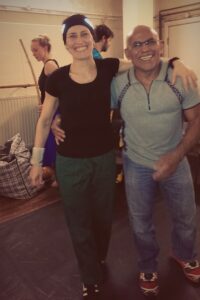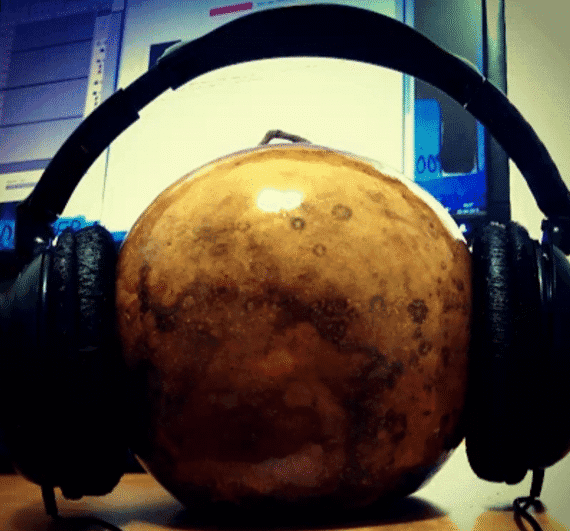18 March 2015 – Maracangalha and Mestre Curió
Today we learned this song in our music class, and much more!
I extracted the above from this AMAZING album. The more I listen to it, the more I want to listen to it! I’m going to play it continuously until I know it off by heart. I have tried to find Mestre Curió’s music to buy on the internet – I love this album so much I’d like to show my appreciation by buying it. No luck so far. If anyone knows of anywhere I can purchase it from.
Mestre Curió (curió is a type of singing bird), Jânio Martins dos Santos, born 1937, Candeias, Bahia. Started Capoeira age 8. He teaches in Salvador, Pelourinho, at his ‘Escola de Capoeira Angola Irmãos Gêmeos do Mestre Curió’, and at the Instituto Araketu. He also is involved in the Associação Brasileira de Capoeira Angola.
From an interview to Viva Salvador da Fundação Gregório de Mattos Magazine, 2005
“Capoeira was created as dance, as a defense movement. I never thought of capoeira as a criminal activity, but as an art form. The capoeirista is our people’s artist, the black people. And the black artist suffers a silent oppression in Salvador.
I faced many difficulties since childhood, but I never got into crime and the margins of society. Now I help pull children out of marginalization. When you show a child the value of black culture, an art form, the result is very satisfying. There’s no better reward than rescuing a child who’s living a life of crime, for example, and taking them out of the world of trafficking and drugs.”
Now, some sites have his first name as Jaime, others as Jânio. Jaime so happens my father’s name, but it’s not a common Brazilian name. So, I have a hunch Curio’s first name is Jânio. But I don’t know for sure.
Maracangalha ê ê
Maracangalha ê á
MARACANGALHA Ê Ê
MARACANGALHA Ê Á
Olha lá Maracangalha – Look there Maracangalha
Terra grande de valour – Great land of value
A terra da capoeira – Land of capoeira
Onde Besouro andou – Where Besouro roamed
Maracangalha
MARACANGALHA Ê Ê
MARACANGALHA Ê Á
Olha lá Maracangalha – Look there Maracangalha
Terra boa hospitaleira – Good hospitable land
A terra dos engenhos – Land of processing plants (for sugar cane)
Onde nasceu a capoeira – Where capoeira was born
Maracangalha
MARACANGALHA Ê Ê
MARACANGALHA Ê Á
Olha lá Maracangalha
Terra boa de tradição – Good land of tradition
Todos com o uniforme branco – Everyone with white uniform
Com o seu chapeu na mão – With their hats on their hands
Maracangalha
MARACANGALHA Ê Ê
MARACANGALHA Ê Á
Olha lá Maracangalha
De você tenho valor – From you I got my values
Hoje sei a capoeira – today I know capoeira
Aprendi com meu avô – I learned with my grandfather
Maracangalha
MARACANGALHA Ê Ê
MARACANGALHA Ê Á
Olha lá Maracangalha
Que teve um terror – There was a terror
A terra da capoeira – Land of capoeira
Onde meu pai também andou – Where my father also roamed
Maracangalha
MARACANGALHA Ê Ê
MARACANGALHA Ê Á
Olha lá Maracangalha
De você eu tenho dó – I feel sorry for you
Jogo essa capoeira – I play this capoeira
Do Brasil a Maceió – From Brazil to Maceió
Maracangalha
MARACANGALHA Ê Ê
MARACANGALHA Ê Á
Maracangalha is a disctrict in the city de São Sebastião do Passé, Bahia; It is the place where Besouro lived and was killed by the knife made with ticum. This probably explains why there are so many stories of him flying above Maracangalha.
ALSO: Maracangalha, a neighbourhood in Belém;
Maracangalha, a student republic in Sao Paulo.
‘Eu vou para Maracangalha’, is a famous samba by Dorival Caymmi
Mestre Curió Capoeira Angola album
Mestre Poncianinho has been bringing his A3 notebook to class for us to take photos of, with lots of information about the songs we learn. He is teaching us about all the history and meanings behind these songs, so that we can literally go on a journey when we sing them. It’s a great way of learning Capoeira songs and at the end of class you will see a bunch of us hunched over his notebook taking photos.
Tonight was an extra special class because Mestre Ousado was visiting. I first met him three years ago when I trained with DDL. On that occasion Mestre Guimba asked Mestre Ousado to come up with nicknames for us, at the end of his workshop, as he hadn’t yet. Mestre Ousado looked at me for a couple of seconds and as I had been smiling all evening (I’m always smiling when I’m doing Capoeira) he said I should be called ‘Risadinha’. I also read his book back then ‘As Asas do Mestre‘. We both came to London in the late 80s, him a year before me, in 1988, he knew my Capoeira teacher then, and we talked a little about those days.

==========================================================

Leave a Reply